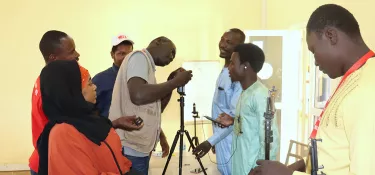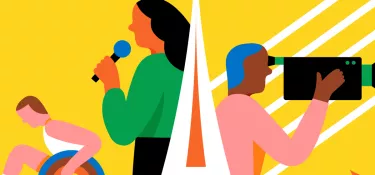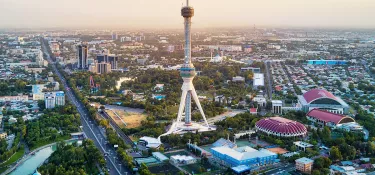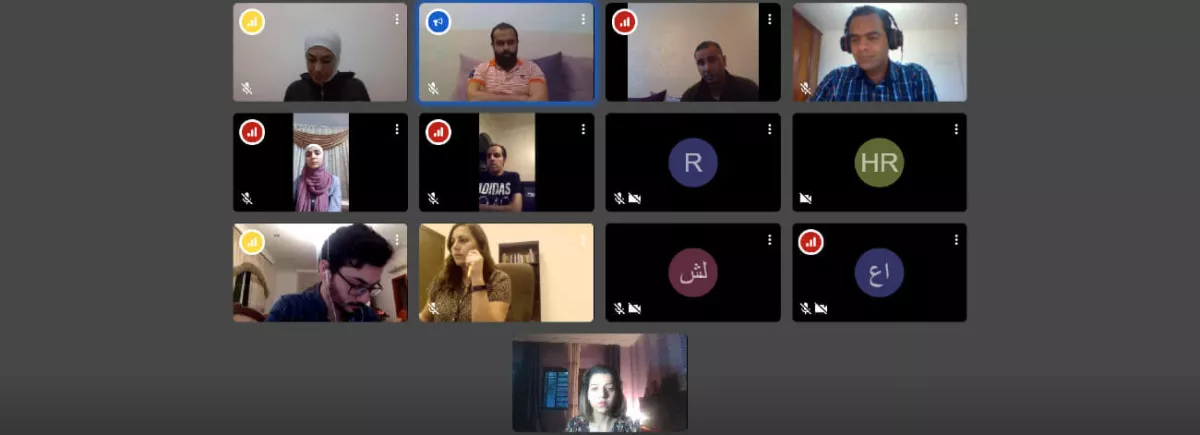
Workshops on "Fact-Checking" in Jordan and Lebanon
Withn the framework on the Qudra 2 programme, CFI organized two online workshops on 18-22 April and 15-19 June titled Fact-checking & Media Information Literacy, focusing on fake news related to COVID-19 and Refugees.
Dr. Moath Althaher founder of Fatabayyano, a leading fact checking platform in the Arab world was the trainer on the workshop. The first training was organized for Jordanian and Syrian journalists in Jordan and the second training was organized for Lebanese journalists. The workshop was adapted to the context of each country, in relation to fake news regarding refugees and COVID-19 in Jordan and Lebanon respectively.
Essential tools and techniques to decrypt fake news
Dr. Moath Althaher founder of Fatabayyano, a leading fact checking platform in the Arab world was the trainer on the workshop. The first training was organized for Jordanian and Syrian journalists in Jordan and the second training was organized for Lebanese journalists. The workshop was adapted to the context of each country, in relation to fake news regarding refugees and COVID-19 in Jordan and Lebanon respectively.
The workshop also introduced tools of figuring out whether a tweet is a real or fake tweet. This will help journalists combat news spreading fake tweets about refugees or the spread of the COVID-19. Another tool Althaher introduced to the participants is one that checks the maximum number of people that can fit in a certain geographic area. This tool will help journalists combat exaggerated numbers of refugees in a certain settlement for instance.
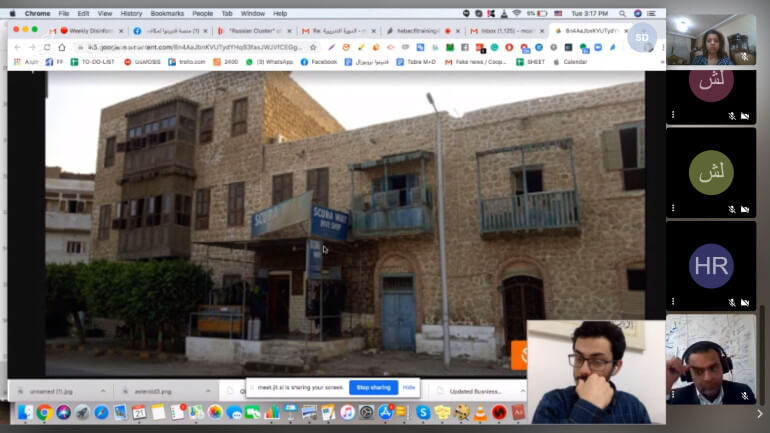
Online training
Following the announcements of the Government of Jordan and the Government of Lebanon on nationwide curfews following the confirmed cases of COVID-19, the workshop was organized via an application online Jitsi Meet.
In Jordan 10 journalists participated in the training workshop, from a variety of media outlets (news websites, daily newspapers, and radio). 40% of the journalists were Syrian while 60% Jordanian, while 50% were women, and the participation of a journalist who specializes in covering the rights of persons with disabilities was ensured. The ages of the participants ranged between (26-39) years. In Lebanon... people participated in the workshop, of whom 83% were women.
In Lebanon, six journalists, journalism students and citizen journalists participated in the workshop, of whom 83% were women. The socio-economic situation in Lebanon and the continuation of protests, has resulted in the diffuculty of journalits to participate in a five-day long training due to the need to be on stand-by to cover news.
Rami Zaloum, a Jordanian journalist said: Through the workshop, I got to know the tools and methods of verifying the information, and quite frankly before my participation I did not know the existence of these types of tools and the ease of working with them and extracting information through them […] And I started to apply what I learned immediately after finishing the training.
Alaa Alnaser, a Syrian journalist, said about her participation: It was a wonderful workshop and there is a lot of information despite the limited time of the workshop […] However, it was very useful and informed us of details we did not know before, especially with the large amount of misinformation in the news at this time, with the spread of the COVID-19 pandemic.
Le programme Qudra 2 – Resilience for refugees, IDPs, returnees and host communities in response to the protracted Syrian and Iraqi crises is a regional action co-financed by the EU Regional Trust Fund in Response to the Syrian Crisis, the EU Madad Fund, the German Federal Ministry for Economic Cooperation and Development (BMZ) and Spanish Agency for International Development Cooperation (AECID) seeking to strengthen resilience for Syrian refugees, IDPs, returnees and host communities in response to the protracted Syrian and Iraqi crises.
Qudra – an Arabic word meaning 'strength', 'ability' or 'resilience'. The programme is jointly implemented by the Deutsche Gesellschaft für Internationale Zusammenarbeit ( GIZ) GmbH, Expertise France, Spanish Agency for International Development (AECID), Hungarian Interchurch Aid (HIA) and Belgium Development Agency (Enabel) in programme partner countries of Iraq, Jordan, Lebanon and Turkey. All five agencies, by pooling their experience and resources, endeavour to achieve a coherent concept and implementation in order to contribute to a shared European solution to the ongoing refugee crisis in the region.
